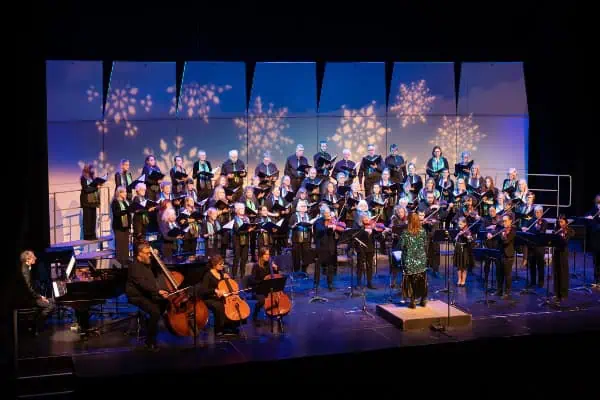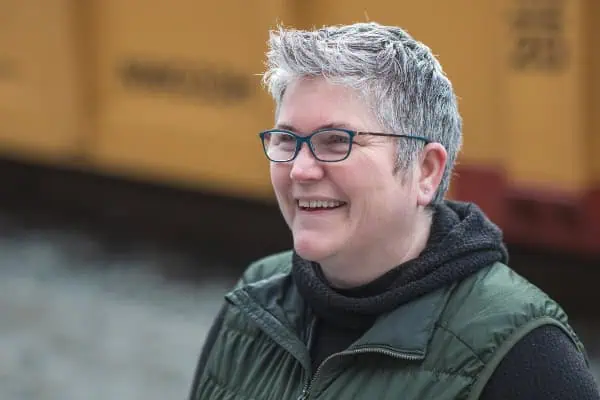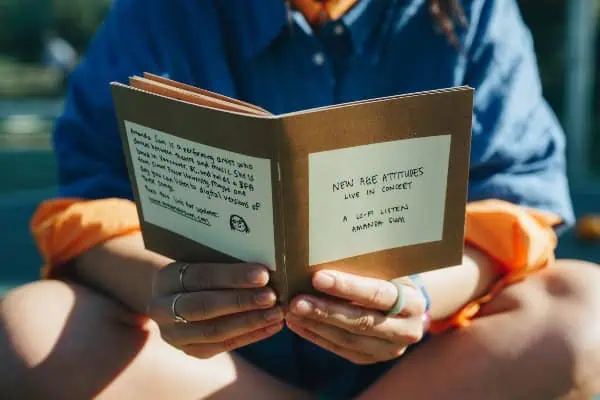You have to be thrilled for Gordie Tentrees.
The first time his ears perked up to enjoy a folk tune, it was at a Fred Eaglesmith picnic.
The first 20 songs he learned to play on a guitar were Fred Eaglesmith songs.
This week, Tentrees is hosting the Canadian music legend and will be opening his show in five Northern communities.
“I saw him when I was 15, at a folk music festival, at a time when folk music didn’t appeal to me,” says Tentrees over coffee in Whitehorse.
“But I heard his songs and stories of tractors and guns and things that did appeal to me.”
It would be another six years, and after a boxing career, before Tentrees would learn to play the guitar. But he says he didn’t have a lot of Canadian musicians to follow.
That is an opinion shared by many Canadians. But Tentrees is now eight years into a musical career and, in many places around the world, he has sat around campfires and he has joined the hosts of his concerts in their living rooms where they end up playing Canadian songs.
“These were songs by Canadians who weren’t even famous in Canada,” says Tentrees. “Cultural differences are interesting for them and we are exotic.”
Tentrees noticed, too, that many, many people outside of Canada know who Fred Eaglesmith is.
“Fred can sell out a room in Nova Scotia, in Texas and in Holland,” he says. “I don’t know anyone else who can do that.”
Often small rooms.
That is what makes the career of Fred Eaglesmith so fascinating and something that Tentrees considers worthy of emulating.
This made-for-Hollywood career began on a family farm in southern Ontario where Eaglesmith was one of nine children.
As a teenager, he hopped a freight train with the $12 guitar he bought at Zellers after working on bringing in hay all summer.
Working in logging camps and construction and mining, he learned more and more about this guitar of his and, more importantly, he learned stories.
“A lot of them are true,” says Eaglesmith over the phone. “A lot of them are half-truths.”
There is a pause for effect.
“Doesn’t really matter just so long as they get told.”
Tentrees says many “Fredheads” come to the show just to hear his stories between songs.
And he further admits that Eaglesmith’s voice and his guitar-playing skill is seldom the reason people plan their vacations around his concerts. It is for his stories.
They are stories of rural life, engines, failing farms and failing small businesses. The songs follow down-and-out characters dealing with loss and often have surprise endings and twists.
“I just put on a show,” says Eaglesmith. “Comedy bits and, you know, just keep the flow.
“A lot of entertainment value has been lost in the early 60s as folk singers just stood there on the stage and sang and that was allowed.
“The 50s was a big time for entertainment, but then it got artsy.
“I decided to bring that entertainment back. I just want the people to get their money’s worth.”
Tentrees agrees: “People who saw his show here five years ago will remember it.”
But it will be a different show this time. For one thing, he has a younger band behind him and the songs are more rock and roll.
Eaglesmith even has an electric guitar now … although his banjo will be there, too.
“He does whatever he wants,” Tentrees says, shaking his head. “That’s what I appreciate: There are no rules.
“He’ll play a venue nobody else will play; he’ll play at Free Pour Joe’s or a tractor pull.
“He builds one fan at a time.”
Pondering this, Tentrees declares, “I keep doing this because people let me do it.
“If I play to 50 people a night, five nights a week, and get paid as much as a carpenter, I’ll be fine.”
That’s what Eaglesmith did. Not many people knew him in those first 20 years. He booked his own shows, handled his own publicity, sold his own tickets and would put on the best show he could every time.
He met a lot of musicians on their way up to the big time, playing stadiums. And he met them on their way down again. Except, this time, Eaglesmith’s career was still climbing.
“A stadium is not a great place to see a show,” Eaglesmith says from his Port Dover home in Ontario where he was resting up after a European tour.
“A lot of my friends don’t play stadiums anymore; it is just false, not really real.
“It is much more ego-driven and I’m sure I have a lot more fun than those guys.
“[American] Idol and ‘The Machine’ … used to be a time when a record was good for six weeks and now you are only good for six weeks.
“But I am totally comfortable with what I am doing.”
And so is Tentrees. He likes playing to appreciative crowds and he likes an audience that listens to the words of the song instead of just getting drunk.
These are the audiences he met in Europe when Eaglesmith asked him to open for him on his month-long tour.
Besides that, Tentrees says he learned much about touring and he made many contacts. And he is starting to find a good base in many different places in the world … just as Eaglesmith has done.
But he hasn’t forgotten how he got his start in the Yukon, eight years ago, playing at Steve’s Music Shop in front of his first audience.
“The Yukon is very encouraging, very nurturing,” he says today.
Tentrees and Eaglesmith played in Skagway and Haines last week. On May 13, they play in Haines Junction and on May 14 at the Yukon Arts Centre. Then they will play in Dawson City May 15.




